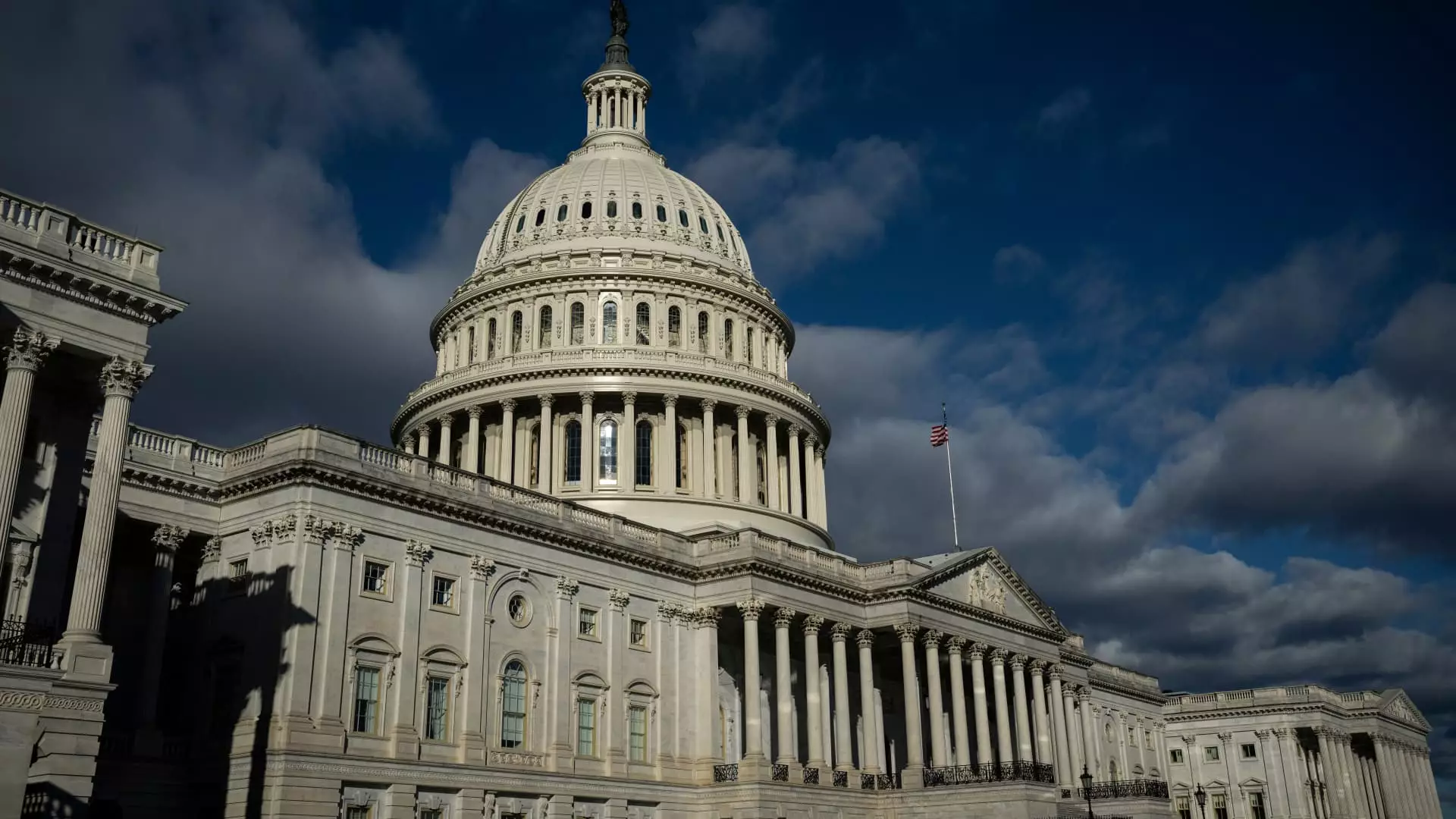The House of Representatives made a decisive move on Wednesday night by passing a $78 billion tax package. Aimed at expanding the child tax credit, this bill achieved a bipartisan majority of 357-70, signaling strong support. However, as it now heads to the Senate, its future remains uncertain. With objections from different corners of the political spectrum, coupled with Senate requirements for a 60-vote majority, the fate of this tax package hangs in the balance.
The Republican-led House successfully passed the tax package using a fast-track process that necessitated a two-thirds majority. Despite its broad support, including from both Republicans and Democrats, it faces some opposition. On one side, liberal Democrats object to the business tax breaks, while right-wing Republicans are concerned about the child tax credit policy. Additionally, New York GOP members are dissatisfied because the package fails to expand the $10,000 cap on federal deductions for state and local taxes.
Now that the bill has reached the Democratic-led Senate, it must secure 60 votes to pass. However, there are doubts about whether it can garner enough support. Even within the Senate, skeptics like Chuck Grassley, a Republican from Iowa and a member of the Finance Committee, have expressed concerns. He did not mince words when he stated that he worries about the bill making President Joe Biden “look good” during an election year.
Senate Majority Leader Chuck Schumer, a Democrat from New York, refrained from providing a specific timeframe for the tax bill’s vote or whether it would be amended. While he expressed support for the bill, he stated that he is collaborating with Senator Ron Wyden, a Democrat from Oregon and the Finance Committee’s chairman, to chart the best path forward. These deliberations indicate that discussions are ongoing, potentially suggesting room for amendments.
At the heart of this tax package is the expansion of refundable child tax credits. Its primary goal is to relieve struggling families, particularly those with multiple children. The bill proposes incrementally raising the $1,600 refundable cap on the credit and adjusting it for inflation. Furthermore, it seeks to revive certain expired provisions of the 2017 Republican tax cuts for businesses, such as research and experimental expensing and small-business expensing.
Ahead of the House vote, Jason Smith, the Republican Representative from Missouri and chairman of the House Ways and Means Committee, hailed the bill as “pro-growth, pro-jobs, pro-American.” He expressed confidence that this legislation would provide main street communities across the United States with lower taxes, increased opportunities, and improved financial security.
Senator Mitch McConnell, the Republican Minority Leader from Kentucky, has delegated the Senate GOP’s response to Senator Mike Crapo from Idaho, the ranking member of the Finance Committee. Crapo favors subjecting the bill to the committee’s scrutiny, where revisions can be made. He also emphasizes the importance of a floor process that allows all members to submit their amendments. Notably, Crapo specifically highlights the need to address the provision that permits taxpayers to utilize income from a previous year to claim higher child tax credits.
The $78 billion tax package’s journey from the House to the Senate has not been without controversy. While it has garnered support from both sides of the aisle, objections and concerns persist. Its fate now rests in the hands of the Senate, where the hurdles of a 60-vote requirement and potential amendments loom large. As lawmakers continue their deliberations, the future of this tax package and its implications for struggling families remain uncertain.


Leave a Reply